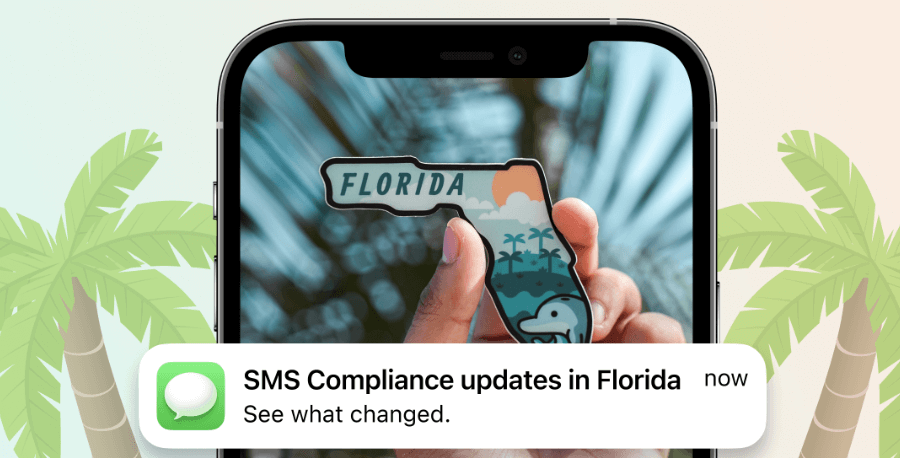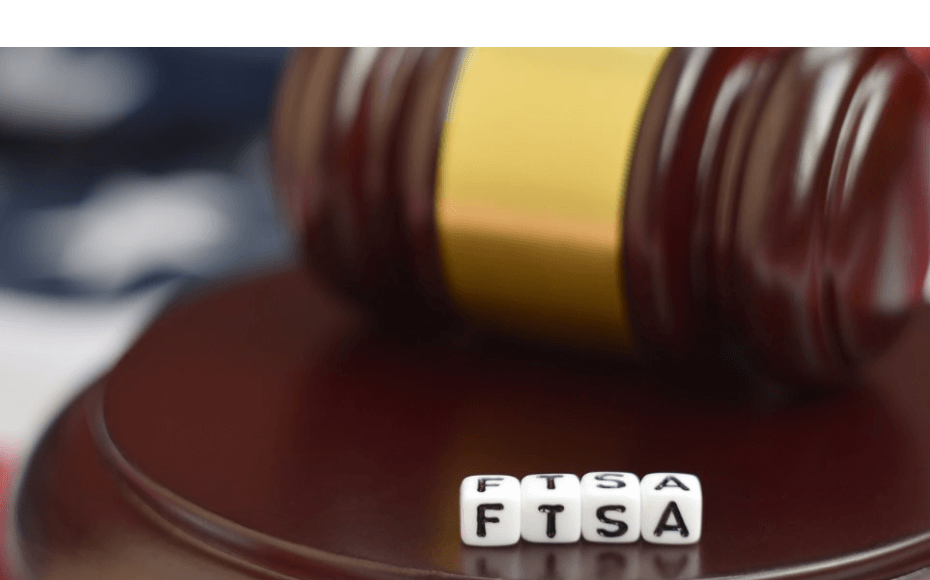📑 Table of Contents
- Legislative Changes and Initial Intentions
- The Anti-Spoofing Provision Controversy
- Adjusting Business Strategies for Compliance
- Looking Ahead: Implications and Industry Impact
- The Role of Technology in Compliance and Enforcement
- Consumer Awareness and the Shift in Marketing Ethics
- Legislative and Judicial Responses to Evolving Challenges
- Conclusion: The Future of Telemarketing in Florida and Beyond
The legal landscape for telemarketing in Florida is evolving. Despite efforts to simplify and reduce litigation, companies are now facing new lawsuits under the amended Florida Telephone Solicitation Act (FTSA) following Governor Ron DeSantis’s enactment of House Bill 761 on May 25, 2023. This revision addresses concerns about abuse of telecommunications litigation, especially text marketing claims.
Legislative Changes and Initial Intentions
House Bill 761 introduced a crucial “cure period,” giving businesses a 15-day grace period to halt unauthorized text messages upon receiving a “STOP” request from recipients. Lawmakers designed this window to allow companies to correct non-compliant practices without facing legal repercussions. Despite these provisions, legal challenges focusing on the nuances of the amended law have resurged. Critics argue that these cases might skirt the law’s protections, undermining its goal to shield businesses from premature litigation.
Moreover, the FTSA revisions were supposed to streamline the telemarketing process by clarifying the rules around consent and opting out. However, the resurgence of claims suggests businesses must navigate these regulations with greater caution and precision to avoid becoming litigation targets. As a result, firms across the state are revising their outreach strategies and shoring up their compliance protocols to align with the new legal expectations.
The Anti-Spoofing Provision Controversy
A large portion of the new litigation targets the FTSA’s anti-spoofing requirements. These rules demand marketers include a legitimate callback number with each message, ensuring communication transparency and accountability. Recent lawsuits claim that messages sent without such numbers are misleading, thus violating the FTSA. Legal professionals are debating whether the cure period applies to these specific violations.
The contention centers on whether the FTSA’s 15-day grace period should allow businesses time to address issues related to misleading or missing callback numbers in their texts. This debate has significant implications, as the outcome could either broaden or limit the scope of the cure period. Companies are closely watching these developments, knowing that the judicial interpretation of these provisions could have widespread effects on their marketing operations and legal risks.
Furthermore, the focus on anti-spoofing violations highlights the evolving challenges that digital marketers face in maintaining compliance. As technology and marketing strategies advance, the legal frameworks governing them must adapt. This situation underscores the ongoing need for clear regulatory guidelines that keep pace with technological innovations in marketing.
Adjusting Business Strategies for Compliance
Businesses are intensifying their compliance efforts in response to the heightened legal risks. Effective consent management is becoming a focal point. Companies are now ensuring that their text marketing campaigns operate on an explicit opt-in basis, which provides clear and verifiable consent from recipients before sending any marketing messages. This step is crucial in mitigating the risk of FTSA violations.
Additionally, marketers are improving their systems to allow consumers to opt-out efficiently and reliably. Ensuring these systems are robust and regularly tested is vital to complying with the law’s letter and spirit. Regular audits of customer contact lists against state and federal Do-Not-Call registries are also becoming standard practice. These measures are essential in preventing communication with individuals who have opted out of receiving marketing messages, thus reducing the potential for legal challenges.
Beyond operational changes, legal strategies are also evolving. Many businesses are revising their consumer agreements to include clauses emphasizing arbitration over litigation to deter class actions and limit legal exposure. These contractual adjustments are part of a broader strategy to fortify defenses against potential lawsuits arising from SMS marketing activities.
Looking Ahead: Implications and Industry Impact
The unfolding legal battles over the FTSA’s scope and applicability will likely influence future regulatory approaches and marketing practices beyond Florida’s borders. As businesses adapt to these changes, the outcomes of current litigation could set precedents that shape the landscape of digital marketing across the country. Legal experts and business leaders keenly observe these developments, recognizing that the stakes extend beyond immediate legal costs.
The broader implications involve shaping the balance between consumer protection and operational freedom for businesses in the digital age. As this balance evolves, so will companies’ strategies to engage with consumers while navigating the complex web of regulatory requirements. The ongoing legal challenges under the FTSA are a testament to the dynamic interplay between law, technology, and business in the modern world.
The Role of Technology in Compliance and Enforcement

As legal challenges under the FTSA increase, technology plays a pivotal role in ensuring compliance. Businesses are turning to advanced software solutions that automate consent management and provide accurate record-keeping. These tools are crucial for maintaining a clear audit trail of consent and opt-out requests, which can be vital evidence in defending against claims. Moreover, technological solutions allow companies to respond swiftly to opt-out requests, updating their marketing lists in real time to avoid unintentional violations.
The integration of technology extends beyond compliance to enforcement. Regulatory bodies use more sophisticated monitoring tools to track and identify non-compliant activities. This increased surveillance means that businesses must not only comply with the letter of the law but also anticipate potential enforcement actions. As a result, investment in compliance technology is becoming a critical strategy for businesses aiming to mitigate legal risks and adhere to evolving regulations.
Consumer Awareness and the Shift in Marketing Ethics
The rise in legal claims has also led to heightened consumer awareness about their rights concerning telemarketing. This awareness influences public expectations around privacy and consent, pushing businesses to adopt more transparent and ethical marketing practices. As consumers become more knowledgeable, they are more likely to assert their rights, including opt-out provisions and complaints against misleading practices.
This shift is not just about compliance but about building trust with consumers. Businesses prioritizing ethical marketing and respect for consumer privacy are finding a competitive edge in the market. This trend is encouraging a broader shift in the industry towards more responsible marketing practices that value consumer engagement based on trust and transparency.
Legislative and Judicial Responses to Evolving Challenges
Given the ongoing legal challenges and the rapid evolution of marketing technologies, legislative and judicial bodies are pressured to update and clarify regulatory frameworks. Lawmakers are considering further amendments to the FTSA and other related laws to better align with current technologies and marketing practices. Businesses and legal experts closely monitor These potential legislative changes, which could significantly impact compliance requirements and enforcement practices.
Meanwhile, courts are setting precedents that will guide future interpretations of the law. The outcomes of current FTSA-related cases will help define the boundaries of legal telemarketing practices and the applicability of the cure period to different types of violations. As these judicial decisions unfold, they will play a crucial role in shaping the legal landscape for telemarketing nationwide.

Conclusion: The Future of Telemarketing in Florida and Beyond
The ongoing developments in Florida’s telemarketing regulations are a microcosm of a larger national and global conversation about the balance between effective marketing and consumer protection. As businesses navigate these complex legal and ethical landscapes, the importance of proactive compliance and thoughtful engagement with consumers has never been greater. The future of telemarketing will likely involve advanced technology, stringent compliance measures, and a commitment to ethical practices that respect consumer privacy and preferences.
In conclusion, while the legal challenges to the FTSA amendments present immediate hurdles for Florida businesses, they also offer an opportunity to lead the way in responsible and innovative marketing practices. As the situation evolves, the lessons learned here will undoubtedly influence broader regulatory and business strategies across the country, setting the stage for the next digital marketing era.
